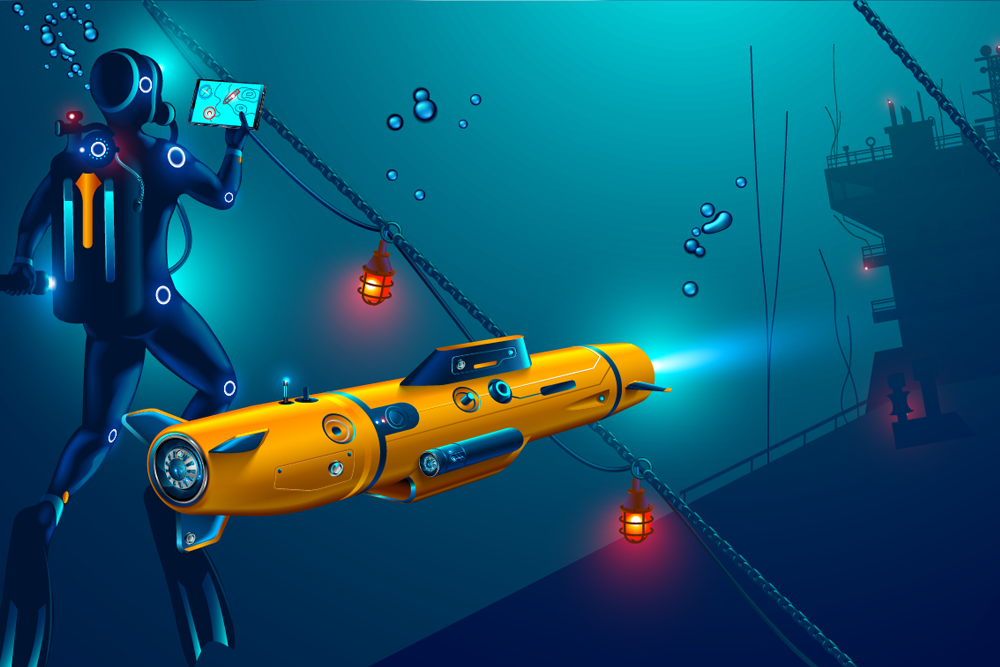The Incredible Autonomous Ships Of The Future: Run By Artificial Intelligence Rather Than A Crew
2 July 2021
There has been a lot of discussion about autonomous vehicles on the land and in the air, but what about on the sea? While the world got the first glimpse of a fully autonomous ferry thanks to the collaboration between Rolls-Royce and Finferries, the state-owned ferry operator of Finland, there’s still quite a bit of work to be done before we can expect the world’s waterways to be overtaken with autonomous vessels.

Levels of Autonomy
Even though we might be years or even decades away from the majority of vessels becoming autonomous, there are certainly artificial intelligence algorithms at work today. A fully autonomous ship would be considered a vessel that can operate on its own without a crew. Remote ships are those that are operated by a human from shore, and an automated ship runs software that manages its movements. As the technology matures, more types of ships will likely transition from being manned to having some autonomous capabilities. Autonomous ships might be used for some applications, but it’s quite possible that there will still be crew onboard some ships even if all hurdles to acquiring a fully autonomous fleet are crossed.
Autonomy in Ships
As we saw with the Finnish ferry, the first autonomous ships will be deployed on simple inland or coastal liner applications where waters are calm, the route is simple, and there isn’t much traffic.
There’s also an inland electric container ship, Yara Birkeland, under construction that is expected to be completed in 2020 and fully autonomous by 2022. Some companies are building fully autonomous ships from scratch, while other start-ups are developing semi-autonomous systems to be used on existing vessels. When Rolls-Royce sold its autonomous maritime division to Kongsberg, it gave the Norwegian company a boost in its goal of being a leader in the autonomous shipping industry. Samsung is another company that uses machine learning, augmented reality, analytics, and more to create a smart shipping platform through its Samsung Heavy Industries division.
Existing cargo ships have the chance to get retrofitted with autonomous technologies thanks to the efforts of start-ups such as San Francisco-based Shone. Shone’s technology helps crews with piloting assistance and to detect and predict the movement of other vessels in the waterway.
Benefits of Autonomous Ships
Just as artificial intelligence and autonomy promise in other applications, it is expected that autonomous ships can improve safety, increase efficiency, and relieve humans from unsafe and repetitive tasks.
According to a study by Allianz, between 75% and 96% of maritime accidents are caused by human error. If autonomous and semi-autonomous systems can help reduce the reliance on humans that can make mistakes due to fatigue or bad judgement, autonomous ships could eventually make our oceans safer. Even if a crew is on board, the data gathered from the ship’s sensors combined with artificial intelligence algorithms will help the crew make better-informed decisions.
A reduction or elimination of crew reduces the personnel and auxiliary costs (such as onboard provisions and insurance) on a voyage. Typically, crew-related expenses account for 30% of the budget. There are also efficiencies realised in ship design and use of fuel. One study projected savings of more than $7 million over 25 years per autonomous vessel from fuel savings and crew supplies and salaries.
Hurdles to Overcome
Since there are significant safety concerns especially with the enormous size of most ships operating in congested waters, there is a lot more testing to be done and regulations to be sorted out before we will see fully autonomous vessels operating without a crew. Much more likely is that automated technologies will be used to reduce crews and to help the crew onboard make effective decisions. In addition to ensuring the safety of ships, there needs to be a resolution about the regulation of our shared water. Existing international conventions were created under the assumption a crew would be on board. In response, the International Maritime organisation (IMO) has kicked off its work to assess and update conventions to ensure safety in a new reality when AI is the captain instead of humans.
Until there is significant interest in fast-tracking research, development, and updates to regulations for autonomous ships, the industry will likely learn from the decisions made on land regarding autonomous cars and then apply that to autonomous ships. Adoption and acceptance of autonomous cars in the coming years may put pressure on finding the same solutions for the sea.
Related Articles
What CES 2026 Tells Us About The Future Of Work, Without Saying ‘Work’
By now, “smart” versions exist of just about every home appliance, gadget and gizmos we can think of. However, manufacturers continue[...]
8 AI Agents Every HR Leader Needs To Know in 2026
By now, “smart” versions exist of just about every home appliance, gadget and gizmos we can think of. However, manufacturers continue[...]
The 6 Education Trends That Will Shape Learning And Skills In 2026
By now, “smart” versions exist of just about every home appliance, gadget and gizmos we can think of. However, manufacturers continue[...]
The Big Ideas Shaping CES 2026 And What They Mean For The Future Of Technology
By now, “smart” versions exist of just about every home appliance, gadget and gizmos we can think of. However, manufacturers continue[...]
Why CES 2026 Signals The End Of ‘AI As A Tool’
By now, “smart” versions exist of just about every home appliance, gadget and gizmos we can think of. However, manufacturers continue[...]
Letting AI Browse The Web For You Sounds Great Until It Goes Wrong
By now, “smart” versions exist of just about every home appliance, gadget and gizmos we can think of. However, manufacturers continue[...]
Sign up to Stay in Touch!
Bernard Marr is a world-renowned futurist, influencer and thought leader in the fields of business and technology, with a passion for using technology for the good of humanity.
He is a best-selling author of over 20 books, writes a regular column for Forbes and advises and coaches many of the world’s best-known organisations.
He has a combined following of 4 million people across his social media channels and newsletters and was ranked by LinkedIn as one of the top 5 business influencers in the world.
Bernard’s latest book is ‘Generative AI in Practice’.










Social Media